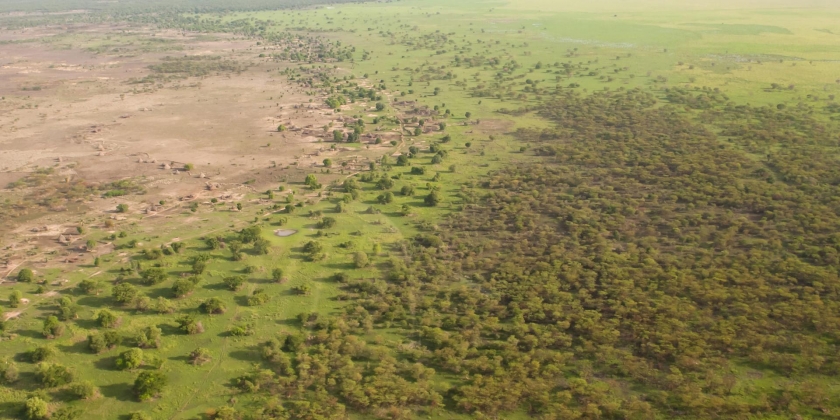The Great Green Wall has shifted its focus to broader rural development, helping Sahel-Saharan countries address sustainability challenges, according to the United Nations Environment Program.
The coordinator of the Great Green Wall Initiative explained that this rural development includes “improving production systems that sustain the livelihoods of small farmers and pastoral communities to increase food security, create jobs and strengthen the local economy through sustainable land management.” (GGW) of the United Nations Environment Program (UNEP), Adamu Buhari, speaking to Lusa.
The Global Environment Facility (GEF), along with the United Nations Environment Program, the World Bank and the United Nations Food and Agriculture Agency (FAO), has played a leading role in transforming the original initiative, which was tree planting, into one focused on integrated natural resource management to improve the way Live and landscape.
“The GGW is reversing the trend of desertification and land degradation at a time when climate change and biodiversity loss threaten food security,” warned Tina Pirmbelli, Executive Secretary of the United Nations Convention to Combat Desertification (UNCCD).
The official explained in a report published by the Organization for Economic Co-operation and Development (OECD).).
Buhari said that all the GGW countries in the Sub-Saharan region belong to the group of least developed countries in the world.
Some countries started implementing GGW activities since 2007, while others started in 2014, when the project was ratified.
Buhari explained that “the differences between the achievements of different countries also arise from the specific circumstances of each country, which sometimes lead to delays in the planned implementation process.”
The 11 GGW member countries have been involved in various sustainable land management activities, including water and soil conservation measures, as well as activities in the forestry and agricultural sectors.
In this context, land has been restored and preserved to increase resilience to climate change and to ensure sustainable food production, such as reforestation.
Other actions were the establishment of orchids, as well as multi-purpose gardens and community nurseries for plant production.
Moreover, since drought and water scarcity are one of the major environmental problems in the Sahel, most countries have addressed this issue through water conservation measures such as watershed management, drilling and water harvesting techniques.
The coordinator explained that “the planted trees are indigenous and have strong economic value and potential for value chain development.”
These species include the acacia in Chad, Niger, Mali, Senegal and Sudan, the baobab tree mainly in Senegal, or the moringa tree in Burkina Faso, Niger and Mali.
He said that renewable energy is being implemented in some countries, especially solar energy, which is used to drill water.
Buhari concluded, “There is potential for wind and hydropower, but it has not yet been explored, certainly due to limited financial resources.”
For the NGO Greenpeace, “it is equally important to combat illegal logging and other agents of ongoing degradation,” Tal Harris, Greenpeace’s International Communications Coordinator in Africa, told LUSA.
For NGOs, if the initiative is well implemented, “a trillion planted trees, of native species, can help connect existing natural ecosystems.”
Harris explained that GGW can also “help diversify degraded agricultural landscapes,” combat desertification, “and build landscape resilience to emerging climate impacts, and create a better microclimate.”
If watersheds and biodiversity are protected and “sustainably managed in the hands of communities,” Harris said, they can generate income through international financing.
“We urgently need to cut emissions [de carbono] across all sectors and restore ecosystems.”

“Hardcore alcohol maven. Hipster-friendly analyst. Introvert. Devoted social media advocate.”

